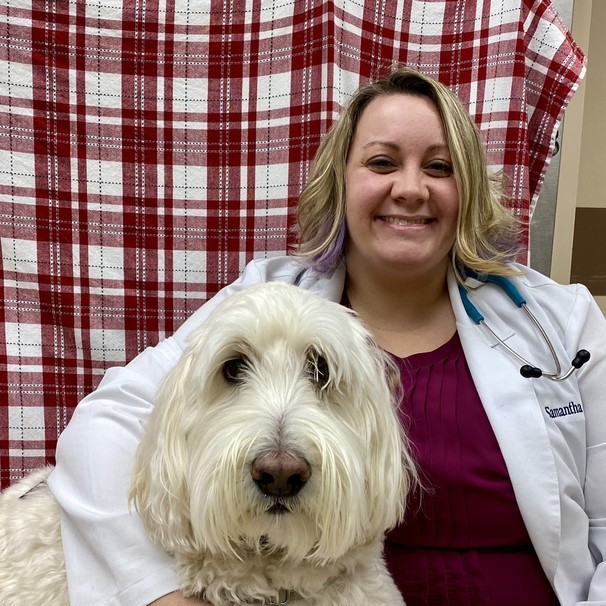
For our forward-looking clinics, telemedicine is here to stay
It might seem like perfect timing that Cascade Hospital for Animals and Breton Village Animal Clinic began offering telemedicine in January 2020, only two months before the COVID-19 pandemic struck Michigan. But according to telemedicine provider Dr. Samantha Abel, it’s a service that will only grow in popularity, no matter what’s going on in the world.
“Cascade is a future forward clinic,” said Dr. Abel. “When we first considered offering telemedicine, it was something that was a bit on the back burner here in Michigan, but was taking off in a lot of states. As it became more prevalent in human medicine, we thought it was something we could offer our clients that no one else was offering. It fits with our increasingly fast-paced lifestyles, being able to offer time slots that work for people.”
Telemedicine is the ideal solution for clients who are looking for guidance but don’t necessarily have time to go to the vet, or don’t know whether taking their pet to the vet is necessary. Clients reach out to Dr. Abel for a variety of reasons, such as to ask about unusual behavior while their pet is recovering from surgery, or to ask whether a problem the pet is exhibiting needs veterinary intervention.
“People love their pets like children and they like being able to communicate easily with a vet and get their concerns heard,” said Dr. Abel. “They ask, ‘Is this a situation where I really need to go into the emergency clinic tonight? Should I be worried?’ And I’m able to offer them that peace of mind, which is really comforting.”
Using an app called Medici, existing CHFA and BVAC clients can reach out to Dr. Abel with questions in one of three ways: video chat, phone, or text. “I’ve found most people prefer to text. They like the ease of being able to share with me what’s going on and I can respond right back.” Clients share symptoms with her, such as dermatological issues or minor cuts and scrapes, and share photos when necessary. “Clients ping me when they need my help and I can get back to them quickly or let them know when I can get back to them.”
Quality of life comfort
From owners whose pets are nearing the end of life, “I get a lot of quality of life questions, questions about lameness and GI issues,” said Dr. Abel. “If you have an older dog, it’s harder to get them to come into the vet. It’s more uncomfortable for them to come in, and it’s more uncomfortable for the client to have that face-to-face discussion with the doctor. With lameness in particular, often the pet is so hyped up on adrenaline from the trip to the vet, the lameness miraculously goes away temporarily. But when you can talk to them over the phone, or they can share photos or videos of the pet’s behavior in the home, it’s easier to get the full picture of what’s going on without the stress of being at the vet getting in the way.”
Easier solution
At the beginning of the year, when telemedicine at CHFA and BVAC began, “a few people had it on their radar. People were starting to use it and really liked it,” said Dr. Abel. “So when the pandemic started to get bad, I had more and more clients start to reach out to me to avoid making that in-office appointment and having to leave home. Sometimes I cannot give them an answer without being able to examine the pet and they do still have to go in, but more often than not, I can help them right there through the app.”
In the spring, when we humans had to start having our own doctor appointments via virtual visits, clients started to become even more comfortable with the idea for their pets. “Now it seems like a normal option for people that they’re actively seeking out,” said Dr. Abel. “I think people are really appreciative that it’s here and will continue to use it.”



